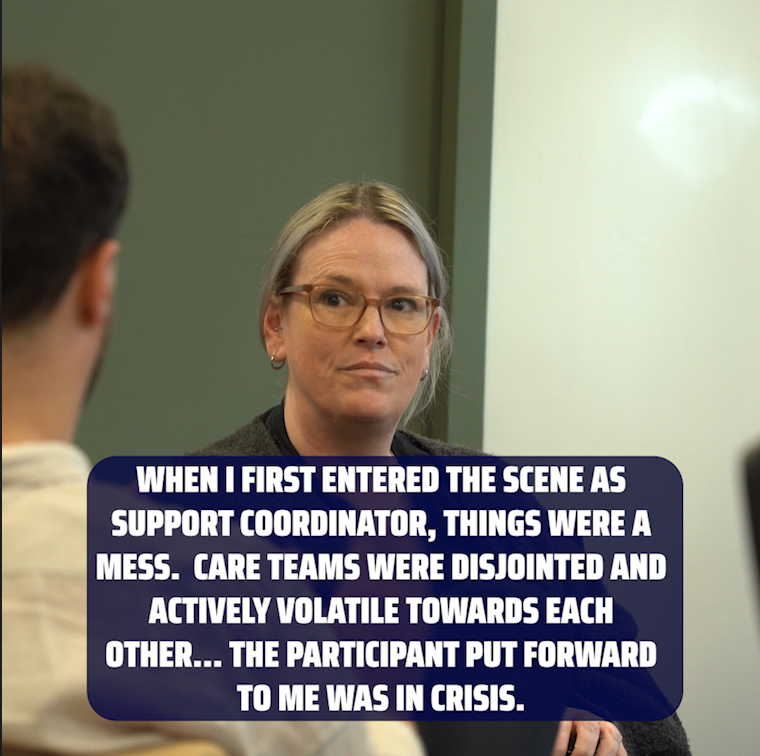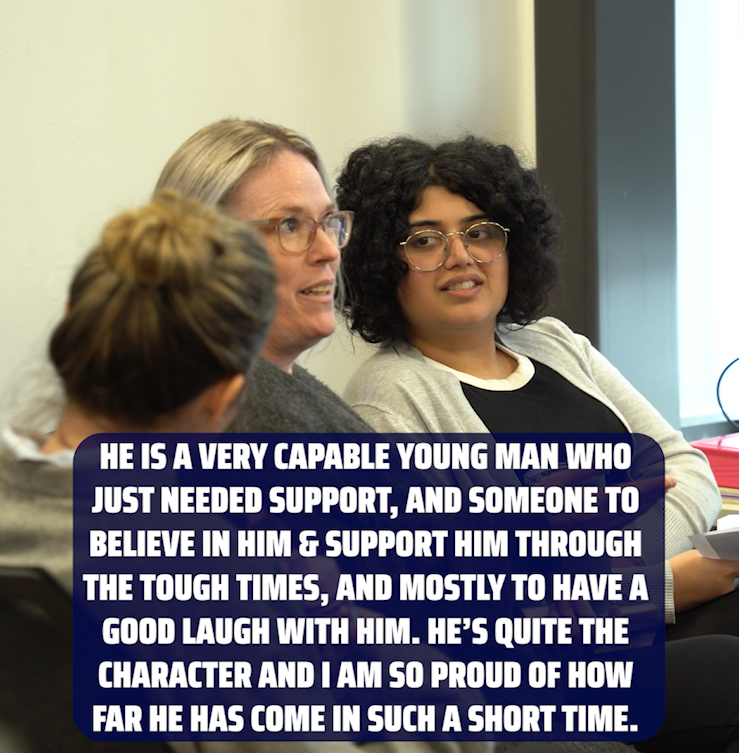Supporting Change in Support Coordination: Journey Towards Stability and Growth
- Katy

- Aug 4, 2025
- 3 min read
When I first entered the scene as Specialist Support Coordinator, things were a mess. Care teams were disjointed and actively volatile towards each other. Lots of blame culture going on. The participant that was put forward to me was in crisis.

Specialist Support Coordination in Crisis Management

There were many negative scripts about how dangerous the individual was and how little they could do for themselves regarding self-care.
The participant had been residing in a SIL (Supported-Independent Living) situation that their NDIS funding would not allow for, but the team was actively advocating for as they felt that it was needed due to the participant's presentation.
I was able to guide the team to understand that a lot of the individual's concerns were Mental Health related and that the NDIS wouldn't fund what they were asking, that we should take advantage of the funding that they had and place them with a provider that is known to the company as proactive with capacity building and person-centred care whilst still utilising the Mental Health support that they were receiving.
Building Effective Person-Centered Support Systems
I worked hard to remind the team that the participant was and still is a young person with a significant trauma background who ultimately needed to feel safe to thrive.
The back and forth with "Will I be evicted due to low funding?" wasn't benefiting the participant, and their family could not be relied on to support them. They were an active part of the individual's ongoing turmoil, so building their independence and capacity was vital for their growth.
The team was focused on many things: age-related, teenage boy things. I, as well as other care team members, agreed that some things weren't ideal, but they were not a crisis and could be worked on once the participant felt safe.
I implemented a script at the beginning of care team meetings and began using the hands-up feature to avoid active conflict. We only had to use this for one meeting as everyone began to speak respectfully with each other and began focusing on solutions instead of problems.
From Crisis to Independence:
Throughout this, the individual was displaced from their family home again, and we were able to ensure they were supported for the week before their SIL was able to accept them. The participant handled this all brilliantly because they were involved in the decisions and made aware of what was going on.
Since moving into the SIL and sharing with another young person the individual has been thriving. They have made a wonderful relationship with their housemate, their support staff and their care team. There are still some hiccups along the way as this young person has not had stability for a very long time. Still, they have been making gains with their ADLs (Activities of Daily Living), socialising, decision making and building relationships, which is so wonderful to see.

The participant is a very capable young person who just needed support that could allow them to take back some control of their life, believe in them, support them through the tough times, and mostly to have a good laugh with them. They're quite the character and I am so proud of how far they have come in such a short time.



Comments